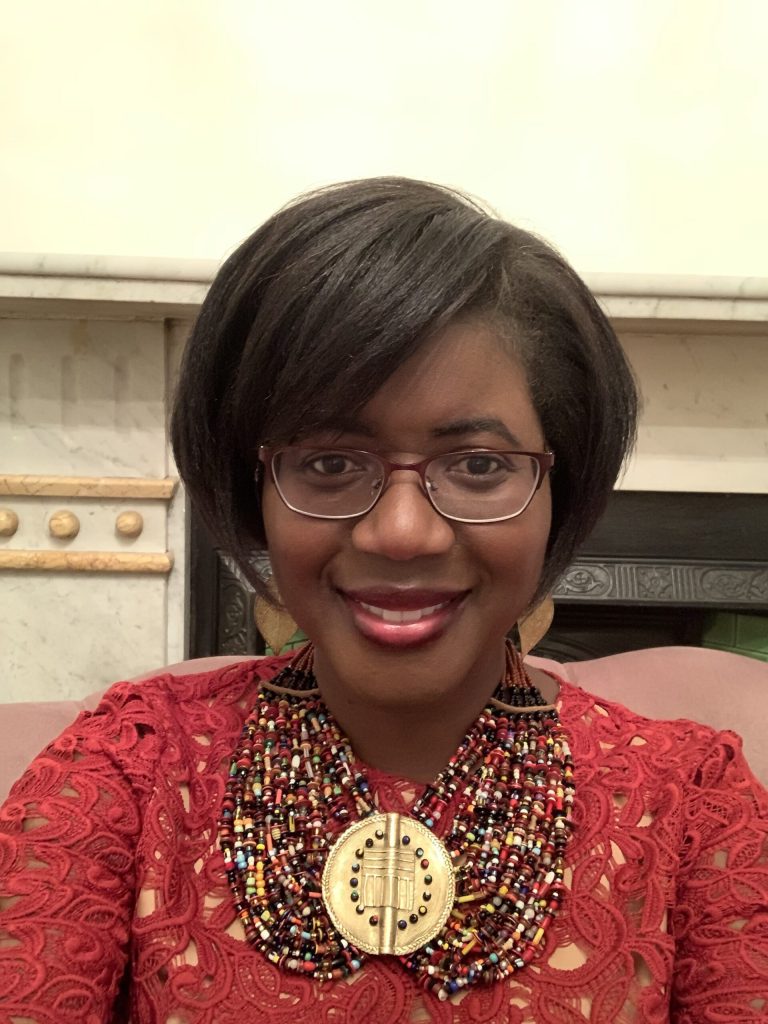Otema Yirenkyi, formerly of Microsoft, IBM & Vodafone, talks “Networking with Intentionality”, and more!
Maxwell: Good evening Otema. I’m looking forward to a pleasant conversation with you. You’ve had all these leadership roles in big corporations, like IBM, Vodafone, being the first-ever female country manager in Microsoft’s Africa operations, what advice would you share with young woman entering such a male dominated profession? Otema: Thank you for having me Maxwell. I think the first thing I would say to them is that it’s really important to be well skilled, right? You’ve got to know your stuff. And then you’ve got to network and build relationships. And that becomes the way in which you step up the ladder. Then also, what I found very useful is go for that stretch assignment, something that makes you push yourself a little bit further. For me, my stretch assignment with IBM was coming to South Africa. I had never done that before. I had been based in the US. And so that was a stretch. I learned; I grew; I worked with different sectors within IT. And that’s something that I would highly recommend. So, whether it’s a global assignment or even within your country, a different department, definitely try and stretch yourself. Maxwell: So, to get out of your comfort zone a little bit, get into some position where you learn new stuff, where you push yourself to bring out, let’s say, whatever you have in store for the world, correct? Otema: Exactly. Maxwell: What do you think right now is the most significant barrier to female leadership? Otema: I think that one of the most significant barriers for some women is that we lack sponsorship. So when you’re sponsored, you get mentored and coached. But also doors get open. And experiences happen. For me, about a decade or so ago, through an emerging leadership program I attended, I met with one of the top executives who was at IBM at the time. We then built up a mentoring and sponsorship relationship. I think that, that opening doors, that network to find out what are the key opportunities, that’s one of the things that impedes women. Because we’re not in the know, of what’s that next assignment, what’s that great opportunity, and I think it’s really really important. You have coaching, mentoring, but sponsorship is people at the most senior levels, helping you to shape and grow your career. And that’s a key disadvantage, I would say. I’ve become a sponsor to a number of young women because I know the importance of it. Maxwell: That actually ties into your answer to the first question on the importance of networking. Otema: Yes. Maxwell: From your standpoint, at this point in your career, what do you think is the biggest challenge for the generation behind you? Otema: What I see is that there’s still, unfortunately, so many more ceilings to smash through, right? They still have to work very hard, be really prepared. But I think one of the challenges now is that you need a diversity of skill. Gartner refers to this as like being a versatilist. You can’t just be in one area. So say for example, you’re a doctor, and you’ve got a clinic. It’s great to have business skills as well, right? So that you can effectively manage. So I think these days, what’s the challenge of our time, is being people who are versatilists, multi skilled, and that helps you to scale both the corporate ladder and to grow entrepreneurially. Maxwell: Such a vast and major problem with the generation, how do you recommend they overcome this challenge? What precise avenue would you recommend to our audience on how to differentiate skills? One of the things I’m trying to do with this Entrepreneur In You podcast, is to try to give our audience definite answers. Otema: I think it’s also about understanding Maxwell, that it takes a team. So maybe let’s go back to the example of an entrepreneur who starts a business, it might be a tech business, and you’re highly skilled in coding and developing, but you’re not strong in sales and marketing. Partner up with sales and marketing friend or colleague who can give you guidance on how do I effectively market this product. That’s one of the concrete things that I’m always coaching because I do coach a number of startups. And I always say, look to where your differentiation is, but then bring along a team, whether it’s an advisory team, or if you have the funds to afford to bring people on who can complement the skills and the capability that you currently have. That’s really important in order to scale any business. Maxwell: Excellent. Again, tying into the networking, which I think is becoming a theme of the day. Otema: But it’s not just to like go and have drinks and stuff. It’s really to build upon your skills when you network. It’s about being intentional saying, “I’m a doctor, right? And I may not have really strong skills in marketing my clinic. So I might go to a marketing event, or whatever, and pick up those skills because a lot of the time, they have these little workshops. Also, I want to meet marketeers so that they can support me in my business”. So it’s not just networking, it’s not just moving around, but it’s networking with intentionality; to build skills; to build a broader network for getting customers; to acquire your customers through the network; and also to build your brand and awareness. Maxwell: That’s great. Otema, you have done a lot, you have a lot more to give, and you have a lot of knowledge to impact. You’ve already mentioned you are mentoring a few people. What is your “Why”? And by that I mean, why you do what you do? What’s your life’s mission? What drives and motivates you internally? What is your “why”? I think for now that’s the best way that I can put the question. Otema: Sure. So my “Why” is change. I see myself as a catalyst for change. In the era and time that I grew up, when we lived in the US, many times we were the only black family. I was the only black child and I saw the importance of making a




